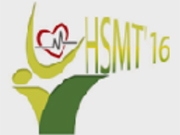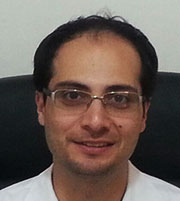-
Details
-
Written by Hassan Mansouritorghabeh, Farahzad Jabbari-Azad, Abdolreza Varasteh, Mojtaba Sankian, Reza Farid-Hosseini
-
Parent Category: Year 2017, Volume 9
-
Category: Volume 9, Issue 5, May 2017
-
Hits: 3029
Collecting information on influencing factors in developing consistent and high-quality extracts results in accurate diagnosis and effective treatment of type I allergy (IgE mediated). Furthermore, considering that a large number of allergens are currently in practice, any attempt to develop a more effective procedure for preparing extract may be useful. Nowadays, different saline solvents, temperature, incubation time, and PH are being incorporated for preparing allergen extracts. The objective of the current study was to clear and address the commonest of solvent buffers and allied conditions for making extracts of pollens of grasses, trees, and weeds. The literature review was done in Jan 2016 on PubMed and Google Scholar medical search engines without any time limitation. After reading abstracts of 87 articles, finally 37 relevant papers were selected and their full texts were retrieved. In conclusion, 24 full-text papers were recognized appropriate and chosen. The extracted information for papers has been described fully in the text. On the basis of these data, PBS buffer with PH 7.4, temperature of 4 °C and with overnight incubation time, may be the optimized condition in order to have a proper extract for carrying out skin prick tests.
Keywords: Pollens, Plant Proteins, Skin Test, Allergens, Solvents
sneakersAir Max
The most recent editorial (June 2021)
Ethics of Publishing Case Reports: Do We Need Ethics Approval and Patient Consent?
An editorial by Dr. Mehrdad Jalalian
Read more.

The worldwide spread of COVID-19 as an emerging, rapidly evolving situation, and the dramatic need of urgent medicine or vaccine, has rapidly brought new hypotheses for pathophysiology and potential medicinal agents to the fore. It is crucial that the research community provide a way to publish this research in a timely manner.
To contribute to this important public health discussion, the Electronic Physician Journal is excited to announce a fast-track procedure to help researchers publish their articles on COVID-19 related subjects that fall under the broad definition of public health, internal medicine, and pharmacology. We are especially welcome to all hypotheses about the pathological basis of the COVID-19 infection and the possible characteristics of potential medicine and vaccine. Submit your manuscript here
Our previous editorial (June 2020)
Lessons from COVID-19 pandemic and the Morocco’s success story.
An editorial by Dr. Benksim Abdelhafid (Morocco)
Read more.

The 6th World Conference on Research Integrity (WCRI) is to be held on June 2-5, 2019 in Hong Kong.
The WCRI is the largest and most significant international conference on research integrity. Since the first conference in Lisbon in 2007, it has given researchers, teachers, funding agencies, government officials, journal editors, senior administrators, and research students opportunities to share experiences and to discuss and promote integrity in research. Read more:

TDR Clinical Research and Development Fellowships
Call for applications
Deadline for submission: 7 March 2019, 16:00 (GMT)
TDR provides fellowships for early- to mid-career researchers and clinical trial staff (e.g. clinicians, pharmacists, medical statisticians, data managers, other health researchers) in low- and middle-income countries (LMICs) to learn how to conduct clinical trials. Read more:

Meta-Analysis Workshops in New York, USA, and London, UK, in April and May 2019
Don't miss this exceptional opportunity to learn how to perform and report a Meta-analysis correctly. Two Meta-analysis workshops are organized in April and May 2019 by Dr. Michael Borenstein in New York, USA (April 08-10, 2019) and London, UK (May 27-29).

About the Instructor
Dr. Michael Borenstein, one of the authors of Introduction to Meta-Analysis, is widely recognized for his ability to make statistical concepts accessible to researchers as well as to statisticians. He has lectured widely on meta-analysis, including at the NIH, CDC, and FDA. Read more:

























